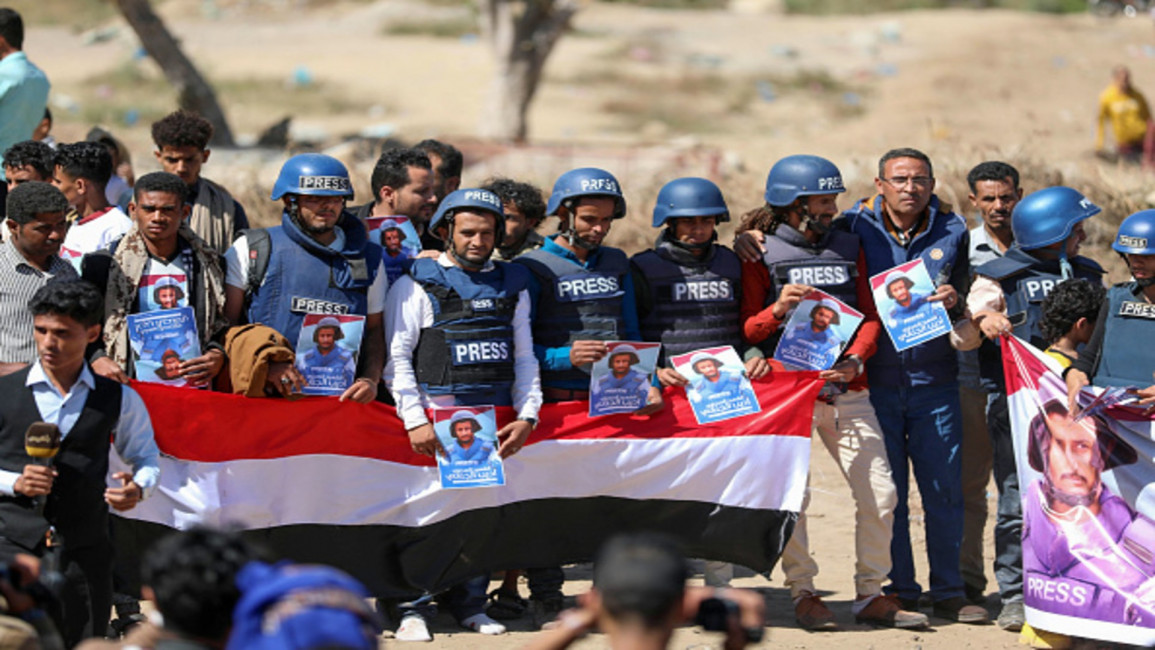Yemen journalists living in danger on World Press Freedom Day
Journalists in Yemen face a "tragic situation", the Gulf Centre for Human Rights (GCHR) said Monday, as the international community marked the annual World Press Freedom Day.
Members of the press in Yemen are among the most endangered in the world and attacks on them are often carried out with complete impunity.
"Civilians or military personnel can commit violations against journalists for no reason other than them doing field work, often without being held accountable," GCHR said.
Despite having ratified seven of the nine core international human rights treaties, Yemen continues to violate freedom of expression, ranking 169th out of 180 countries in Reporters Without Borders (RSF)'s World Press Freedom Index.
Journalists are routinely harassed by officials for reporting on corruption and the poor government performance, which many see as a leading factor in the lack of press freedoms in Yemen.
Read also: Top Islamic authority condemns ban on Ramadan Taraweeh prayers by Yemen's Houthi rebels
Journalists have been sentenced to death or killed in assassinations recorded as attacks by unknown perpetrators.
Four journalists were sentenced to death by the Iran-backed Houthi militia last month after being charged with spreading "false news" in support of Saudi Arabia and its allies.
Akram Al-Walidi, Abdelkhaleq Amran, Hareth Hamid and Tawfiq Al-Mansouri were sentenced to death on 11 April 2020 on what Amnesty International called "trumped-up charges".
On 18 February, police detained three journalists in Hadramaut Governorate and forced them to sign statements promising not to cover political protests in the region, according to the Committee to Protect Journalists (CPJ).
|
Journalists in other parts of the region are also suffering.
The Middle East and North Africa (MENA) region continues to rank bottom of the World Press Freedom Index due to the "use of judicial systems to silence journalists".
In February 2021, Lebanese journalist and political activist Lokman Slim was shot dead in his car on a highway outside Beirut. Slim had been a staunch critic of pro-Iranian political party and militia group Hezbollah, which controls the neighbourhood where Slim resided and was killed.
Moroccan journalist Omar Radi was named the most urgent global case of "threats against the press" by the One Free Press Coalition. Radi was imprisoned in Casablanca on charges of rape, sexual assault, receiving foreign funding, and collaborating with foreign intelligence.
Amnesty International said Radi's phone was tapped using Israeli spyware firm NSO Group's technology as part of the Moroccan government's efforts to clamp down on dissent.
Egyptian journalists Sulafa Magdy and Hossam El Sayed spent more than 400 days in custody for "joining a terrorist group and misusing social media platforms".
They were released in April 2021 after repeated calls from international human rights organisations.
Follow us on Facebook, Twitter and Instagram to stay connected



